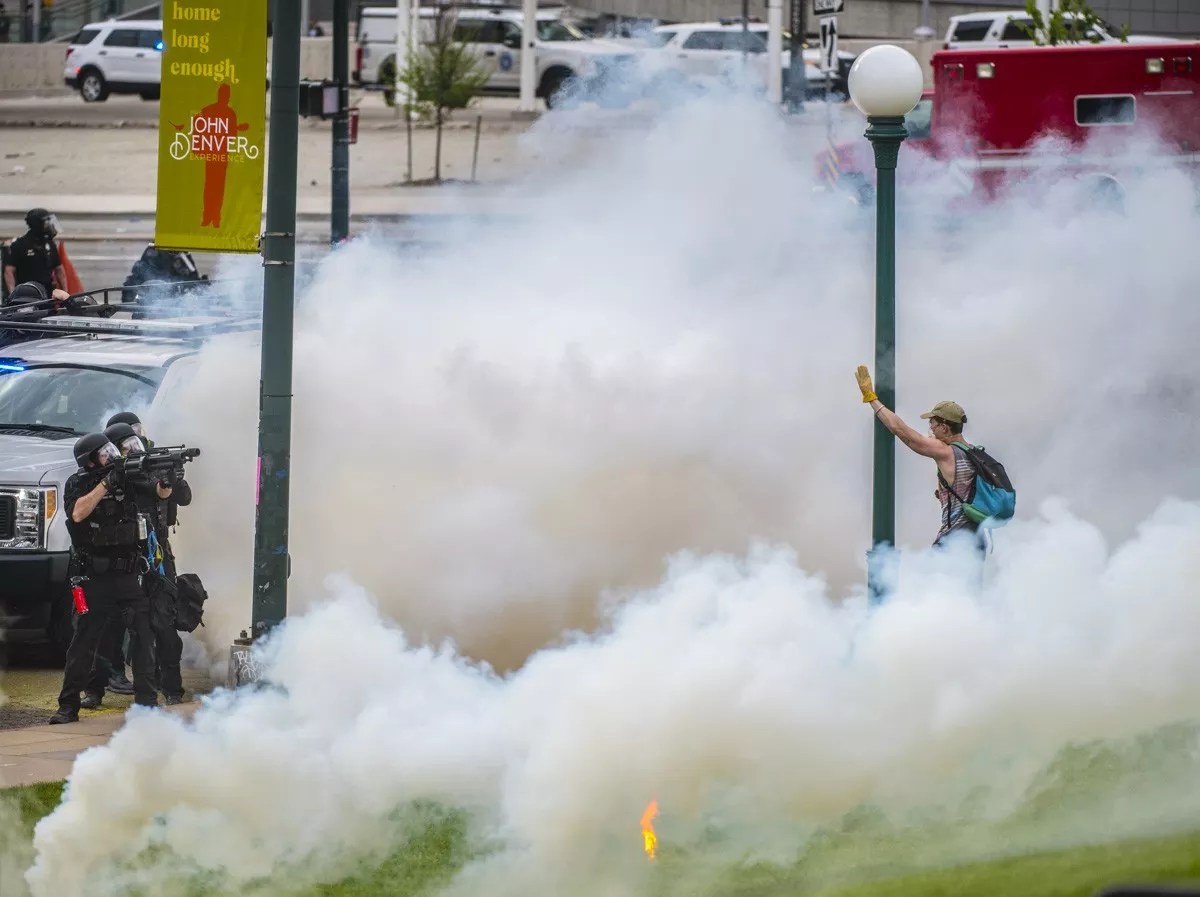

Audio By Carbonatix
The City of Denver just got hit with a second federal lawsuit over law enforcement’s use of “less-lethal” force against demonstrators during the George Floyd protests.
“The City’s actions, while unconstitutional in any context, are even more pernicious here because the use of excessive force has specifically targeted peaceful demonstrators who assembled to protest police violence and brutality, including in particular police brutality that disproportionately targets African Americans,” argues the lawsuit, filed by the ACLU of Colorado and Arnold & Porter on behalf of ten plaintiffs.
In particular, the lawsuit asserts that law enforcement authorities operating in Denver during the protests violated constitutional prohibitions on “unreasonable seizures and excessive use of force” and trampled on First Amendment rights of protesters. The plaintiffs – nine of them individuals, the last the advocacy group Black Lives Matter 5280 – are seeking an end to these allegedly unconstitutional practices and damages for the injuries they’ve suffered.
“Plaintiffs have been – and still want to be – part of the movement to protect Black lives,” the complaint continues. “They want to participate in demonstrations against police brutality in the City without fear that law enforcement agents working on behalf of the City will endanger their physical safety and freedom of expression with the unjustified and indiscriminate use of ‘less-lethal’ weapons.”
From May 28 through June 2, law enforcement authorities in Denver, including officers from over a dozen other jurisdictions that were assisting Denver police, used less-lethal munitions like tear gas, foam bullets and rubber pellet grenades against protesters. Denver officials, including Murphy Robinson, the executive director of the Department of Public Safety, contend that this use of force often came in response to rocks and bottles being thrown at the officers. However, people who were simply protesting peacefully, providing medical or legal support or documenting the protests as journalists were also on the receiving end of these less-lethal munitions, resulting in injuries for some, the lawsuit notes.
For example, on May 31 Zach Packard, one of the plaintiffs in the case, was attempting to kick away a tear gas canister when he was hit in the head with a projectile, resulting in “a fractured skull and jaw, two fractured discs, and bleeding in his brain,” according to the complaint.
Following major criticism of law enforcement’s actions, the Office of the Independent Monitor began looking into both the overall law enforcement response to the protests and individual complaints from protesters and others present at demonstrations. These investigations have the backing of Robinson, Denver Police Chief Paul Pazen and Denver City Council.
The lawsuit filed June 25 in the U.S. District Court of Colorado is the second legal challenge of law enforcement’s use of less-lethal munitions this month. On June 5, in response to a class-action lawsuit brought by four plaintiffs, federal Judge R. Brooke Jackson granted a temporary restraining order that strictly limited how and when law enforcement in Denver could use less-lethal munitions against protesters. That temporary restraining order, which was extended on June 19, is set to expire on June 26.
But part of that temporary restraining order has already become state law. Under the sweeping police reform and accountability measure signed by Governor Jared Polis last week, law enforcement authorities in this state are now limited in how they can use less-lethal force against protesters.
Specifically, law enforcement officers are now required to issue an order to disperse, then allow time for protesters to comply, then repeat the order if it appears the crowd didn’t hear, before they can use munitions like tear gas and pepper spray. They are prohibited from firing less-lethal rounds at the head, pelvis or back of those present at protests. Additionally, law enforcement officers are prohibited from firing less-lethal rounds indiscriminantly into a crowd.
A spokesman for the Denver Police Department says that the DPD cannot comment on a pending lawsuit, but adds that it is “committed to addressing any community concerns following the outcome of the legal process regarding this matter.” The Denver City Attorney’s Office has not responded to a request for comment.